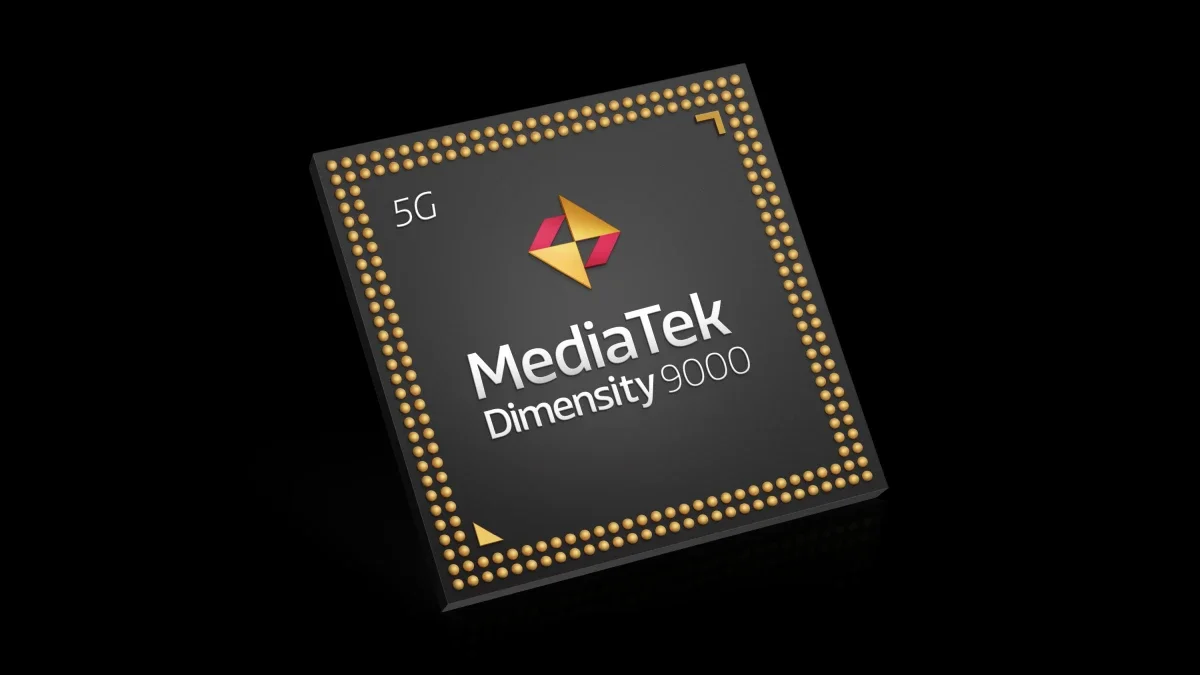Dimensity 9000 benchmark results put MediaTek in the same league as Apple and Qualcomm

MediaTek, which is the number one smartphone chip vendor by volume, revealed its new flagship SoC, the Dimensity 9000 last month and appeared confident that it would be able to beat Android competitors and match Apple's mobile chip in performance. The company has now posted some benchmark results (via Sparrows News) to back up those claims.
Mediatek 9000 vs Snapdragon 8 Gen 1 vs A15 Bionic
The Dimensity 9000 got 1,017,488 points on AnTuTu. The Snapdragon 8 Gen 1, Qualcomm's latest chip for Android flagships, allegedly got 1,035,020 points on the same test.
Both chips have similar configurations: They are built on the 4nm fabrication process and based on Arm's v9 architecture, featuring one Cortex-X2 performance core, three Cortex-A710 cores, and four Cortex-A510 cores. Samsung's Exynos 2200 chip that will power its 2022 flagship in some markets is rumored to have the same specs.
Next, we have the Geekbench 5 scores. The Dimensity 9000 managed 1,237 points in the single-core test and 4,324 points in the multi-core test. A Qualcomm reference phone with the company's latest processor under the hood got 1,235 and 3,837 points in the single- and multi-core tests, respectively. The iPhone 13, which is fueled by the Apple A15 Bionic, achieved 1,730 and 4,700 points.
The Dimensity 9000 got a score of 17,573 in the PCmark test which is slightly more than Snapdragon 8 Gen 1's 17,215.
MediaTek also ran some graphics benchmark tests. In the GFX-Manhattan 3.0 test, the Dimensity 9000 yielded 238 FPS. In contrast, the Snapdragon 8 Gen 1 apparently received 268 points, and the A15 Bionic recorded a score of 215. In GFX-Manhattan 3.1, the Dimensity 9000 recorded 162 FPS, while the A15 Bionic-powered iPhone 13 Pro got 181 FPS.
MediaTek Dimensity 9000 benchmark results at a glance:
- AnTuTu: 1,017,488
- Geekbench single-core: 1,237
- Geekbench multi-core: 4,324
- PCmark Work 3.0: 17,573
- GFX Manhattan 3.0: 238 FPS
- GFX Manhattan 3.1: 162 FPS
- GFX Aztec 1440p Vulkan: 43 FPS
- GFX Aztec 1440p OpenGL: 42 FPS
- ETHZ AI v5: 1024
Those are really impressive results but how this translates into the real world remains to be seen. MediaTek had previously also said that the chip is more power-efficient than rival offerings.
Dimensity 9000-powered flagship phones are unlikely to make it to the US as the chip doesn't support mmWave 5G. Honor, Oppo, Vivo, and Xiaomi are expected to reveal phones with MediaTek's latest flagship SoC early next year.
Follow us on Google News













Things that are NOT allowed:
To help keep our community safe and free from spam, we apply temporary limits to newly created accounts: